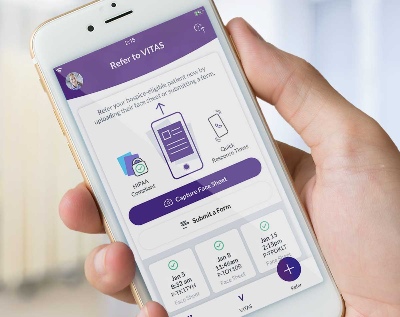Advanced Heart Failure Patients Enrolled in Hospice Visit Hospital Less
The number of hospital and intensive care unit (ICU) visits for patients with advanced heart failure (HF) decreases after hospice enrollment, improving quality of life for these patients, according to the findings of a study published in Circulation: Heart Failure.
“These results highlight the need for timelier hospice referral in this population…”Laura Gelfman, MD, MPH, Icahn School of Medicine at Mount Sinai
Hence, the authors stress the need for earlier referrals for patients with advanced HF, a patient population that enrolls in hospice at relatively low rates.
Due to advanced HF's high symptom burden and mortality (about 50% at one year), "American College of Cardiology/the American Heart Association guidelines recommend clinicians introduce hospice as an option for patients who develop stage D HF," the authors note.
In addition, evidence suggests "family caregivers are equally satisfied" with hospice care for HF patients as for that of cancer patients. However, compared with cancer patients, advanced HF patients enroll in hospice at a lower rate.
In order to examine the effects of hospice enrollment on acute medical care in advanced HF patients, researchers performed a retrospective analysis on the healthcare use of Medicare beneficiaries with advanced HF who used home healthcare in 2009. Patients were included in the study if they experienced two HF-related hospitalizations within a six-month period, then enrolled in hospice.
Key Findings
Among the advanced HF patients who enrolled in hospice (n = 5073; female, 55%; non-Hispanic white, 87%):
- Mean time from discharge to hospice enrollment was 45 days.
- Mean time from hospice enrollment to death was 71 days.
- About half died within 16 days of hospice; 39% died within seven days.
In the first six months of hospice enrollment, compared with the six months prior to hospice:
- Mean hospital admissions per patient decreased from 2.56 (95% confidence interval [CI], 2.48-2.63) to 0.53 (95% CI, 0.49-0.57; P < 0.001).
- Mean ICU admissions decreased from 0.87 (95% CI, 0.84-0.91) to 0.19 (95% CI, 0.17-0.21; P < 0.001).
- Mean ER visits decreased from 1.17 (95% CI, 1.13-1.21) to 0.76 (0.71-0.81; P < 0.001).
"Of the 568 beneficiaries (11%) who died without hospice care, nearly half died in an acute hospital facility, and 17.6% died in a skilled nursing facility or rehabilitation center, which is inconsistent with data on patient and caregiver preferences," the authors write.
Given their findings indicating reduced rates of acute care use in advanced HF patients who enrolled in hospice, which they note is consistent with other patient populations, the authors stress the importance of earlier hospice referrals for patients with advanced HF.
“The unpredictable trajectory of HF makes prognostication challenging," state the authors. However, short hospice enrollment periods are associated with poor outcomes, they note, and may not allow patients to properly experience potential benefits.
Source: Gelfman, L., et al. (2017). Hospice enrollment in patients with advanced heart failure decreases acute medical service utilization. Brookdale Department of Geriatrics and Palliative Medicine, Icahn School of Medicine at Mount Sinai, New York, NY; and Geriatric Research Education and Clinical Center, James J. Peters VA Medical Center, Bronx, NY.Circulation: Heart Failure, 10(3), e003335.

Check Hospice Guidelines
Get diagnosis-specific guidelines in our hospice eligibility reference guide.
Hospice Guidelines by Diagnosis Refer Your Patient
